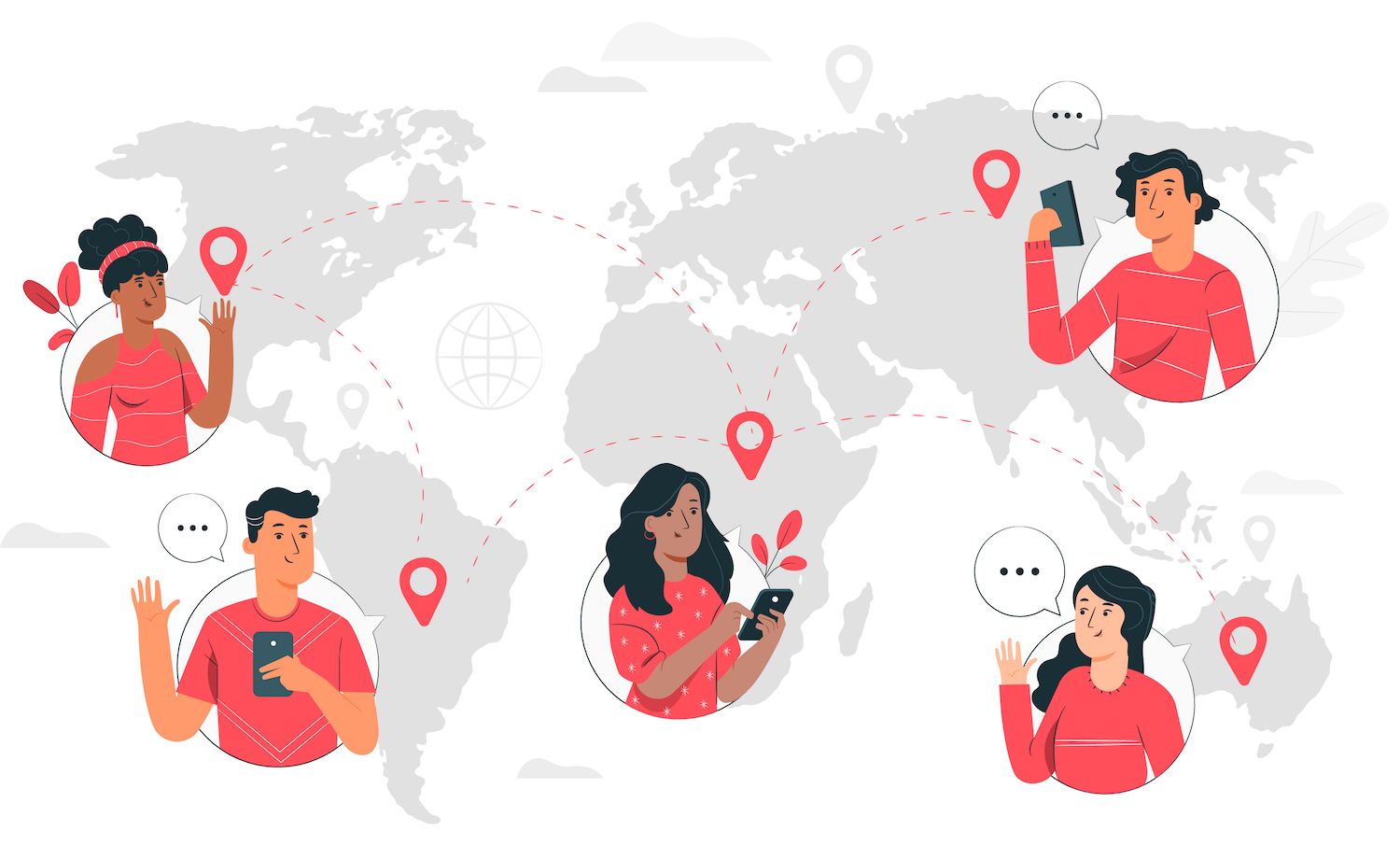Do SaaS Companies Afford to Ignore Sales Taxes and VAT? -
One of the things I've observed while working is that it's common to SaaS and software firms to not pay transaction-related taxes (sales taxes, VAT, GST, and so on. ).
And I get it.
Sales taxes, VAT, and GST are complex, confusing and are not the things IT leaders would like to invest their time.

But also, you should be aware that not paying taxes related to transactions could result in the need to pay certain back taxes at some time in the near future.
During one of my conversations with 's Global Tax Director Rachel Harding, the most knowledgeable person I am aware of on this subject She told me:
- 40% interest and penalties Software companies have incurred 40% interest and penalties when they've ignored taxes on sales in the state.
- Multi-million dollar valuation adjustments from historical sales tax noncompliance during acquisition due diligence.
Plus many more.
To answer our own question: No, you shouldn't ignore the VAT, sales and GST tax.
In this article, we cover five aspects SaaS firms need to be aware of concerning taxes. A lot of this information comes from conversations I had with Rachel. Below, you can also watch two of our talks to hear more.
5 things SaaS Companies Need to Understand About Sales Taxes
1. VAT, Sales and GST Taxes can affect SaaS Valuations
When Rachel worked on a mergers and acquisitions tax team for software firms with small budgets, she witnessed million-dollar price increases as a consequence of tax noncompliance.
"If you're looking to have any type of ownership shift, major or minor investment, they are going to investigate your company," Rachel explained. "They are likely to take a examine all of your procedures such as are you aware on where your products are tax-deductible? Are you watching these rules in collecting, remitting and paying taxes? Are you compliant? Because if not, you'll need to correct it prior to purchasing itor take the purchase price off."
2. If You've Done It Correctly, You Shouldn't Owe Anything Extra
"If you're doing it correctly, technically, it's net-zero to you," Rachel explained.
Tax on sales is a consumption tax that is a burden on the customer, not your company. This shouldn't be a tax you're spending money on. However, it's the responsibility of you to to collect sales tax on the customer's behalf -- and then remit it to the right government agency. The buyer is responsible, but a seller's obligation.
"It's when you're doing it wrong that it becomes an expense, and a liability on your balance account. In the event that you don't, you're unlikely to assess a customer sales tax two years later than the tax was due. So then it's all paid for out of pocket."
3. Consumption Taxes Are Calculated Based on the Location that the buyer is located, Not the Seller.
Sales tax is a complicated issue (especially in places like that of the U.S.), but generally, what you need to be aware of is that sales tax is taken into account where the product is realized (aka the location where your client is). The tax isn't determined based on the location of your business or the place of your company's headquarters.
In practice, the most important data to source sales is billing information as well as the computer's IP address. As the name implies, SaaS is taxed similarly to services and not goods and therefore only 20 of 45 U.S. states with sales tax regimes are actually taxing SaaS. And since the year 2018, if you've got the amount of taxable sales in your region that exceeds the specified threshold, you will be legally considered to be an economic nexus (a special shout-out for South Dakota v. Wayfair to explain this idea! ).
A sales threshold is the amount of sales you have in a specific jurisdiction before you have to pay taxes. Each tax region (whether it's on a state, territory or even a national level) has unique ways of setting the threshold.
4. Tax Laws and Rules have Significantly changed in the last 10 Years
Taxes on sales, VAT and various other taxation related to transactions have been reformed over the last ten years. Certain changes are more significant than others, but they've changed the entire landscape.
2015. EU requires VAT collection For Software Firms that aren't EU members.
Since January 1st, 2015, the EU has begun requiring software providers to collect VAT and to remit it based on the location of the purchaser -- not the location of the seller's company or employees.
VAT rates are set by the country, meaning governments are accountable to keep up with any adjustments to these rates on the level of their country.

2018: U.S. Votes That States Can Collect sales tax from businesses that are not residents of the United States.
In 2018, in 2018, the U.S. Supreme Court ruled that states can impose sales tax for purchases through sellers located outside the state (including sellers on the internet) regardless of whether the seller doesn't have any physical presence within the state that taxes it ( South Dakota v. Wayfair, Inc.). (A.k.a. why we wrote this piece is that non-residents and businesses of all sizes must understand the sales tax system and how it applies.)
In the U.S., sales tax laws vary from state to state. Florida and California do not require collection of sales tax on SaaS subscriptions. But New York and Pennsylvania do.
In the year 2020 Massachusetts has reclassified SaaS charges as "personal tangible property" which means SaaS subscriptions now are subject to sales taxes in the state.
In our interview, Rachel offers other examples of tax law shifting to SaaS companies around the world:
"We see, everywhere over the globe, governments creating rules that specifically target non-resident businesses providing digital goods as well as services. Some will have a threshold of sales, some states that each dollar counts as tax-deductible."
5. Global Consumption Taxes Keep Getting More Complex
New tax mandates are getting passed which directly impact SaaS. Very soon, in countries around the world, SaaS companies running digital platforms could be required to disclose all sellers using their platform.
Why are tax laws getting more complicated?
Countries know they're losing the tax revenues from digital sales that software companies don't disclose.
This is why they're finding new ways to track the flow of money in their state or across the country, and also enforce their collections.
The 4 Methods SaaS Companies Can Manage Sales Taxes and VAT
So how do SaaS firms determine the taxes they must withhold and remit across the globe?
There are four approaches that we observe SaaS companies take to fulfill their obligations for transaction-related taxes:
1. Don't Pay Attention
In this post, not paying sales tax is a popular practice -- but one that can leave your company liable for years of back taxes or fees and penalties. The time frame in which this strategy can work is shrinking. While online shopping continues to increase, so too will the desire and capability to regulate it.
2. Self-Help
Making your taxes yourself is a good option for companies that have the capacity to do it effectively with an in-house team.
However, it's not as simple as plugging an automated tax tool into your sales software.
SaaS businesses also have to be thinking about:
- Ensure that your information are safe and easy to access.
- Learning about what's tax-deductible and what rate to pay.
- Checking tax thresholds for the time to determine the deadlines to pay taxes as well as file tax return.
- Making sure you pay the proper amount and submitting returns by the deadline in all tax authorities where you are required to. It could be a monthly, quarterly, or annually.
- Staying informed about the latest tax law and rules.
- Answering inquiries and notices by Tax authorities. Is it phishing or are they a legal matter?
This can be burdensome for a finance department without technical expertise and cause resentment and turnover.
3. Hire an Accounting Firm
When you outsource your taxes it means that there's fewer internal resources needed and it's likely to be more expensive. Instead of a custom method, employing an accounting company usually implies they'll take a conservative approach with maximum compliance -- even if you would prefer something more customized.
There's a perspective that really only an inside tax professional can provide -- one which requires a thorough understanding of the company and its tax strategies, laws, and how they are all interconnected.
4. Utilize an Merchant of Record (MoR) and outsource the liability
As a company, we are the primary merchant on the transactions you make on your site and are responsible to collect and pay taxes on behalf of you. It doesn't matter if you're trying to deal with lower tax rates, custom taxes, tax-exempt transactions B2C or B2B -- everything is managed by us.
The merchant of record is also at your side if any tax audits or inquires are raised. In the event of an audit then we step in and take the lead and allow you to stay focused on building and growing your SaaS business.
What's the best solution to your business?
Perhaps this seems confusing, but the most damaging choice is not to take action.
In the words of Rachel said, "I can never promise that you will or won't be audited. The only thing can I can say is that taking small steps now could set you up for a far brighter prospects in the future."
In order to determine what is the best option for your company it is recommended to evaluate the resources available and the options.
"It's really knowing the business you operate, the footprint of your business, tax regulations (duh) and the risk you're willing to be willing to take."
Stream My Full Interviews With Rachel Harding
Part One: Why SaaS Companies Can't Afford to Ignore Sales Taxes
Part Two: What Stricter Tax Laws Mean for SaaS

